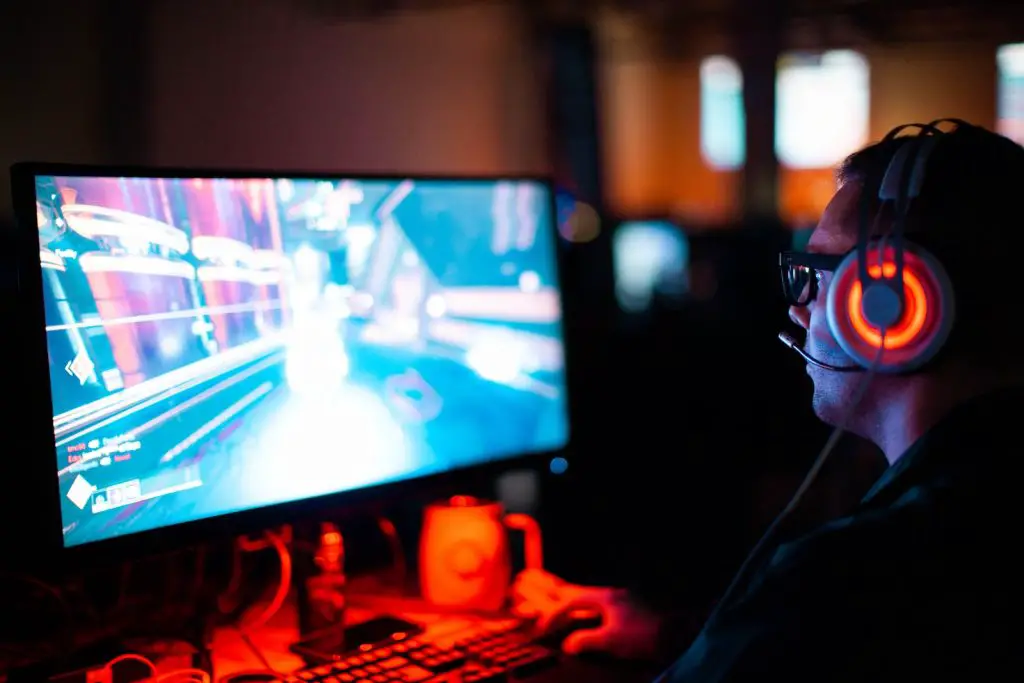This post may contain affiliate links which means I may receive a commission. Learn more on my Privacy Policy page.
Gaming and Mental Health
Gaming can be a relaxing way to unwind, but too much gaming may lead to social isolation and video game addiction.
During the pandemic, many mental health professionals utilized online gaming as a form of treatment for their patients suffering from stress or anxiety disorders. This strategy has proven highly successful.
Can Gaming be Used as a Therapeutic Tool for Mental Health Conditions?
Video games have long been utilized as an effective therapy tool for mental health conditions. Their immersive nature enables gamers to temporarily escape feelings or problems in real life while they focus on accomplishing tasks in video gaming, with goals being accomplished and earning trophies or badges known to provide a sense of achievement that boosts moods.
People struggling with mental health conditions like depression and social anxiety often turn to gaming as a means of relaxation; however, too much gaming can become addictive and negatively affect mental wellbeing. Recently however, video game creators have begun including more thoughtful depictions of mental illness in their games, including Hellblade: Senua’s Sacrifice, Celeste and Psychonauts as examples.
Can Gaming Help You Develop Coping Skills?
No matter the genre of video games you enjoy playing, they can provide therapeutic value to your mental wellbeing. Gaming has been found to provide cognitive benefits, social interactions and feelings of accomplishment, while helping develop coping mechanisms and increase self-control.
Gaming also gives you the chance to interact with new people and form relationships in virtual spaces – something which may prove especially helpful if you suffer from mental illness that makes socialization challenging.
However, gaming should not replace therapy; rather, it should serve as an entertainment activity and limit how much time is spent gaming. Setting limits will help prevent addiction to video games from taking over your life and becoming dangerous.
Can Gaming Help You Deal With Anxiety?
Video games have long been considered an invaluable way to teach coping skills and foster social resilience, as well as help ease anxiety and depression. While gaming may seem popular, excessive gaming may actually be detrimental.
Video game addiction should be taken seriously. Iowa State University researchers have discovered that people who use gaming as a coping mechanism for anxiety are more likely to show symptoms of addiction.
While Gaming can provide temporary relief from life’s difficulties, it’s important to remember that anxiety will always remain present – whether due to genetics, adverse life experiences, stressful situations or high neuroticism personality traits – and cannot be fully eliminated through gaming alone.
Can Gaming Help You Develop Social Skills?
Gamers often experience an array of emotions while exploring virtual worlds. In order to successfully complete challenges and defeat bosses, gamers must learn how to regulate these feelings effectively in order to successfully complete challenges and overcome obstacles and win battles. Furthermore, working collaboratively on this can help develop social skills they’ll use later on in real life.
Video games have quickly become an indispensable resource for mental health therapy. Therapists have found video gaming to be an engaging way of engaging their patients and helping them overcome any associated mental health obstacles.
Many video games allow for team play, enabling players to form relationships across the world and build social skills and foster empathy and compassion while improving hand-eye coordination and problem-solving capabilities. All these benefits may contribute to better mental health as well as reduce stigma surrounding gaming.
Can Gaming Help You Deal With Depression?
Gaming can be an enjoyable way to relieve stress and have a break from daily responsibilities, but if it starts having negative impacts on your life it’s important to speak to a health care provider immediately about this problem.
Depression is a serious mental condition and should never be ignored. It can result in loss of interest in other activities, feelings of worthlessness and hopelessness and suicidal thoughts – symptoms which should never be neglected.
If you are struggling with depression and playing video games excessively, it’s essential that you contact a health professional regarding the matter. They will help reduce gaming time as well as address its source; additionally, they may refer you for other treatments if necessary – including traditional counseling and online therapy services.


